How To Save Clarkson's Farm
On the timeless parables of Clarkson's Farm, the British farmer protests, and the contrast between Jeremy Clarkson's pro-human localism and David Attenborough's anti-human globalism
Comrades: If you ate today, thank a farmer.
Clarkson’s Farm is the perfect blend of humour and education. A cosmopolitan celebrity tries his hand at farming 1,000 acres, then falls in love with the country life. The premise is simple, but the fable is deep. We have all seen farmers across Europe protesting the Eurocrats who are ruining their livelihoods with ESG climate cultism. The apolitical Amish turned out in record numbers to win Pennsylvania because the regime raided their milk farms. Now British farmers have a lovable, obstinate champion who is showing the world the beauty and hardships of their way of life.
The real stars of Clarkson’s Farm are the land and the animals. The Cotswolds are so majestic that they defy description. Jeremy Clarkson is a curmudgeonly Mr. Rogers, complaining but appreciating all of the inevitable mishaps at Diddly Squat Farm. As an American who is not a car fanatic, I didn’t know who he was before watching the show but appreciate his quintessentially British character. He and his girlfriend Lisa tenderly raise cows, goats, sheep, fish, bees, and Sandy and Black pigs. They show us every raw spectacle in the cycle of life: mating, births, harvests, deaths, and trips to the abattoir. Even the hardest cynic would melt witnessing them protect their baby animals through cold, rainy nights.
The funniest bits involve the supporting cast. Farm manager Kaleb Cooper banters and bickers with Jeremy as if they were an old married couple. The former is a jolly lad born and raised in Chadlington, Chipping Norton (most epic village name ever). He has never ventured more than a dozen miles away, while the latter has traveled all around the globe. Yet they share an infectious mischievous prankster spirit, turning the mundane into the hilarious. Kaleb is Britain’s Hillbilly Elegy and could well be a distant cousin of VP JD Vance. The UK and US were built by salt of the earth instinctuals like him. Although he lacks formal education, he contributes far more to society and knows how to do far more useful tasks than the institutionalized Oxbridge set.
Gerald Cooper (no relation to Kaleb) steals every scene with his mullet and an accent so thick that the subtitles say [speaking indistinctly] when he talks. Charlie Ireland is the opposite. He is the prim and proper lawyer who makes sure every i is dotted and t is crossed. Cheekily nicknamed “cheerful Charlie”, he drives Jeremy batty reminding him of all the red tape and regulations that he must comply with.
The government is the hidden, faceless, sinister villain. Farmers can weather droughts and floods, but bureaucrats are existential threats. When Jeremy tries to open a farm shop, they intervene because some products are sourced from beyond 16 miles away and customer traffic is causing congestion. When he assembles a detailed proposal to open a restaurant, they shoot it down and then close the loophole he finds. When he is concerned badgers might spread fatal diseases to his cows, they forbid him from touching them. The amount of man-hours he and his invisible foe waste on minute squabbles is radicalizing.
The badger symbolizes the madness of the green cult. These creatures are not endangered, yet they are permitted to menace all farmers. Any interference would result in crippling fines or even prison. The government has all but declared that the lives of badgers matter more than humans. If they bankrupt farmers and cause food shortages, too bad. The same government that is hell bent on stopping Jeremy from paving a car park because it spoils the “natural beauty” would dump hundreds of migrants in a small village. All of these costs take an emotional, mental, and financial toll. At the end of each harvest season, Jeremy presents the stark reality that the farm generates almost no profit. What happens to all of the farmers who are not wealthy like him?
Jeremy Clarkson and David Attenborough have become ambassadors of British culture. The latter is a living legend, whose distinct accent will forever grace the most stunning nature documentaries ever made. Planet Earth inspired a generations of environmentalists. Yet the themes of Clarkson’s Farm and Attenborough’s more recent work reveal a stark contrast. Clarkson advocates for pro-human localism. He believes that farming, commerce, and preservation can thrive in harmony with minimal government intervention.
Meanwhile, Attenborough has infused his commentary with globalist demoralization. His underlying message is that humans are to blame for climate change and the destruction of ecosystems. We are an invasive species; a scourge that is ruining everything. If the technocrat government doesn’t immediately ban cow farts and tax farmers out of existence, then we will lose the coral reefs and polar bears. Nevermind showing real scientific proof. Then he flies to Davos and the UN to elephant walk with oligarchs and lecture us about the “climate emergency”.
All humans want to thrive while protecting the environment. This should not be political issue. Everyone wants clean water, abundant healthy food, and access to nature. Clarkson’s Farm is an allegory that we must strike a balance within reason. If we demonize all commerce and carbon, then the logical conclusion is net zero degrowth that harms both human flourishing and our planet. Jeremy is standing up for all farmers in their protest against Labour and Two-Tier Kier Farmer-Harmer Starmer. When the Communists drive out the kulaks, famines and Holodomors follow. Let us do everything we can to help farmers by keeping the government boot off their throats.
Apocalypto is an allegory for climate alarmism:
How To Survive the Climate Change Apocalypto
Comrades: The Climate Change Apocalypto is upon us - repent!

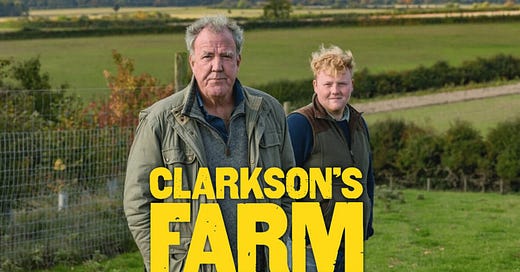



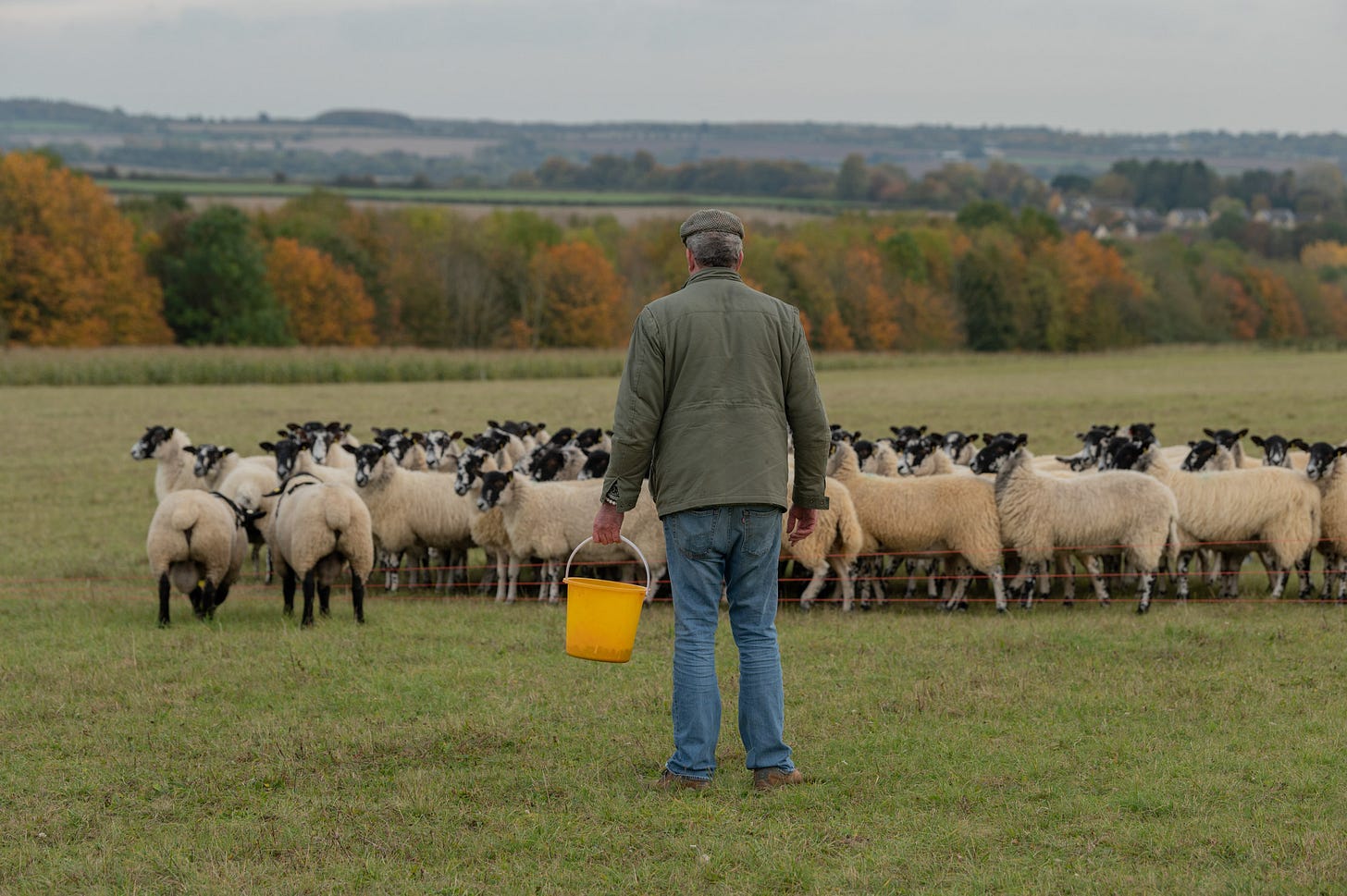
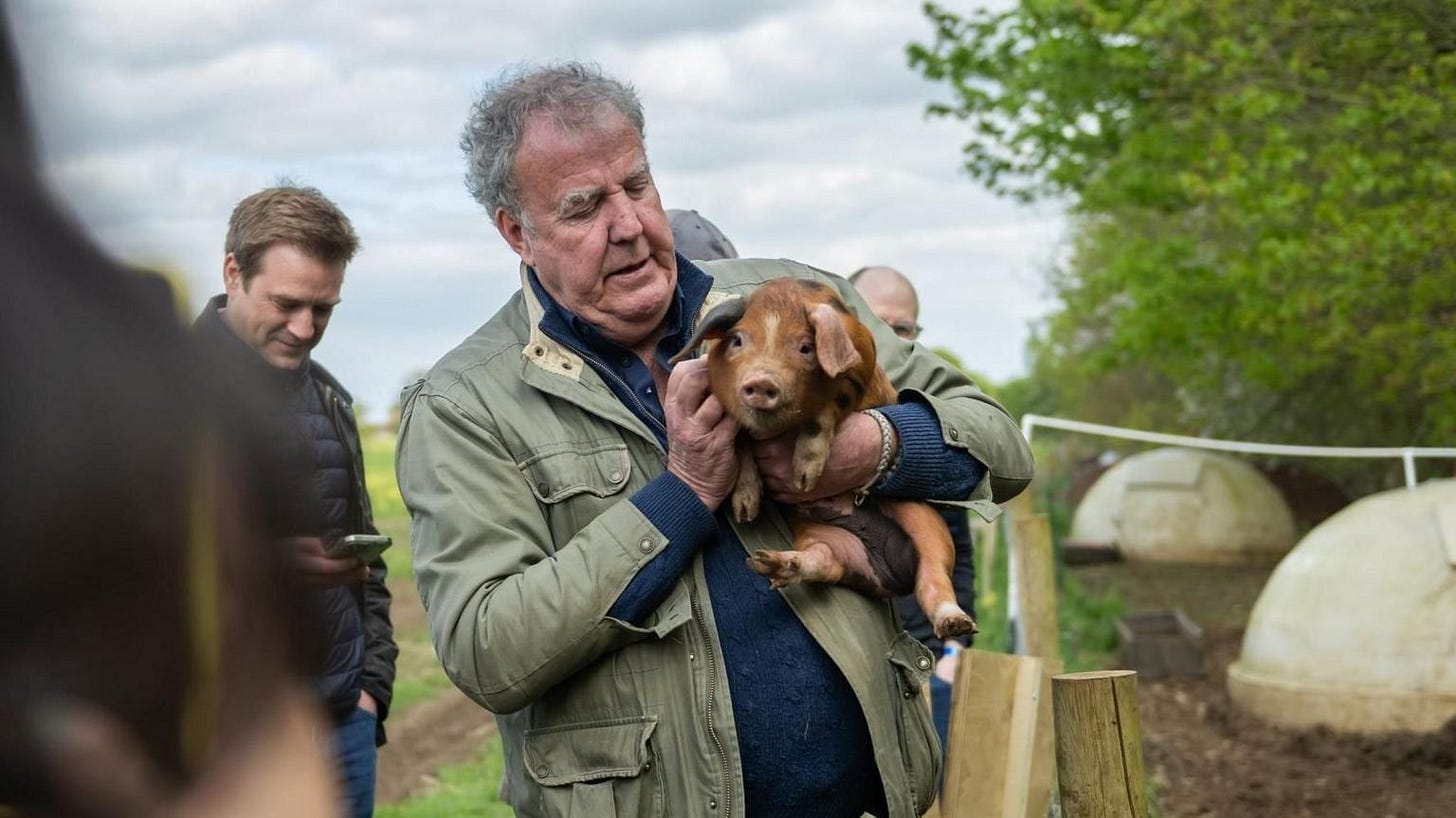
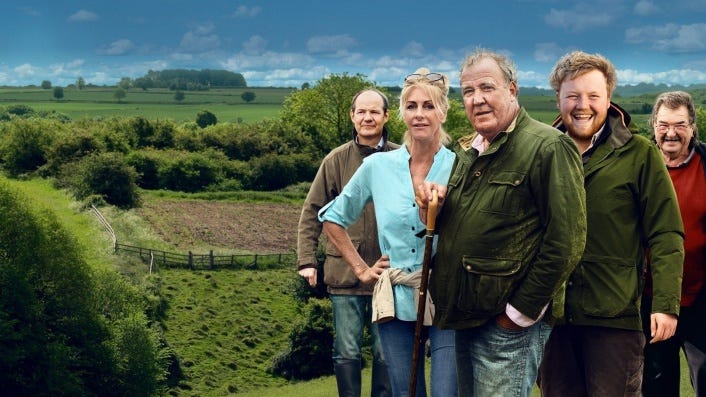

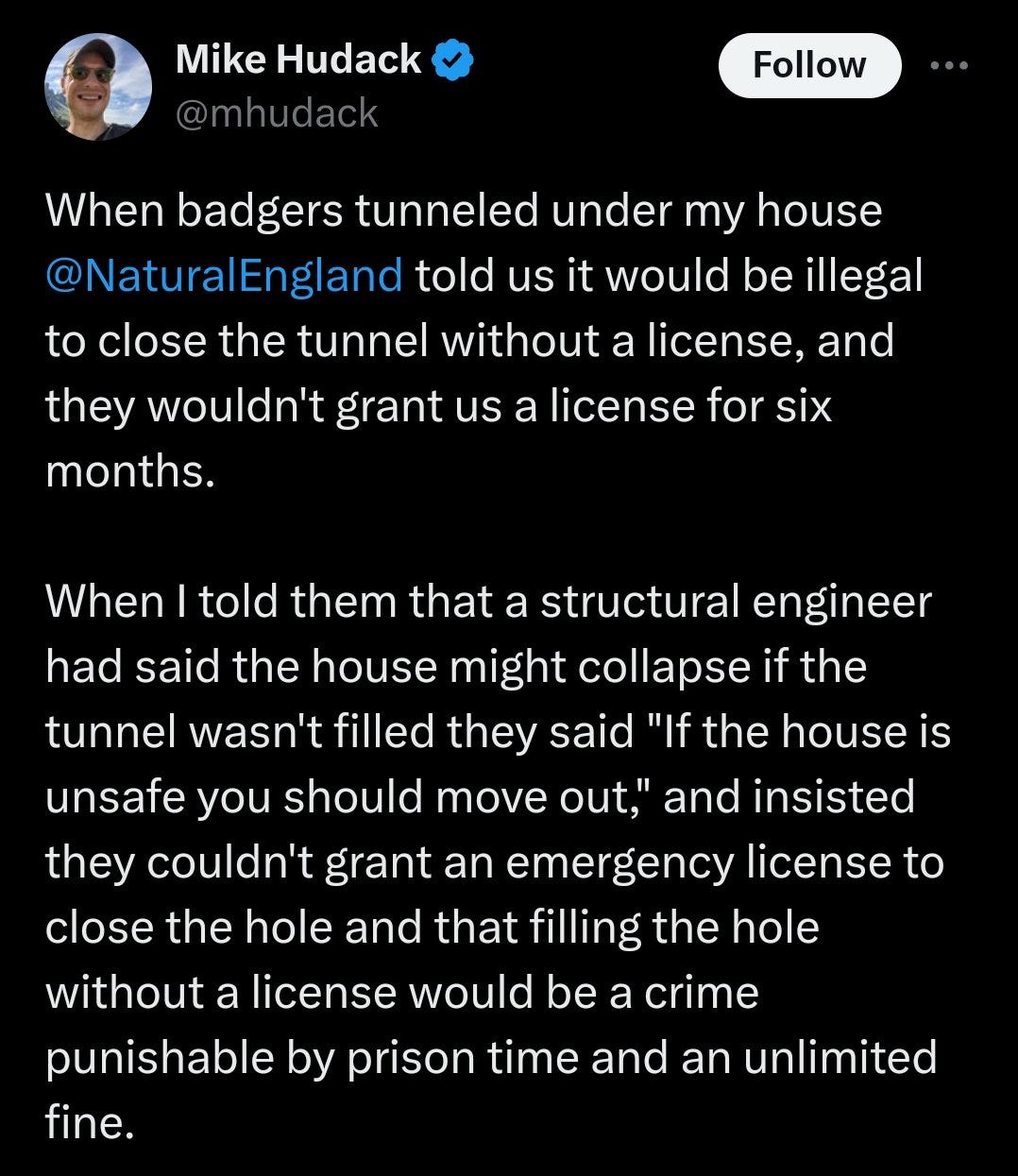
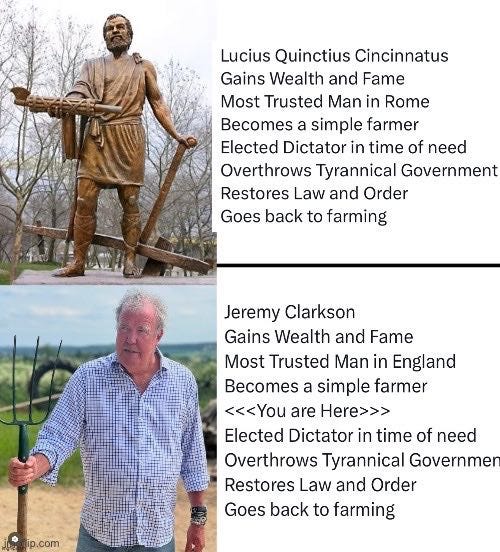
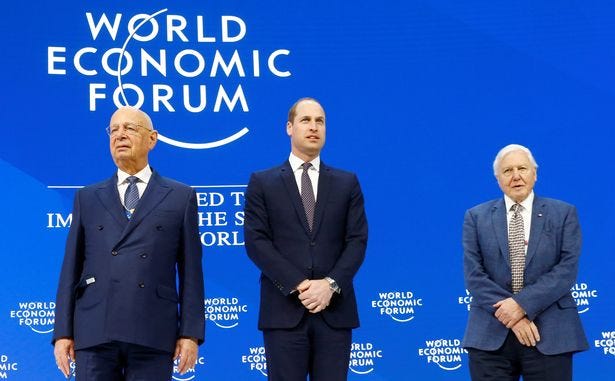
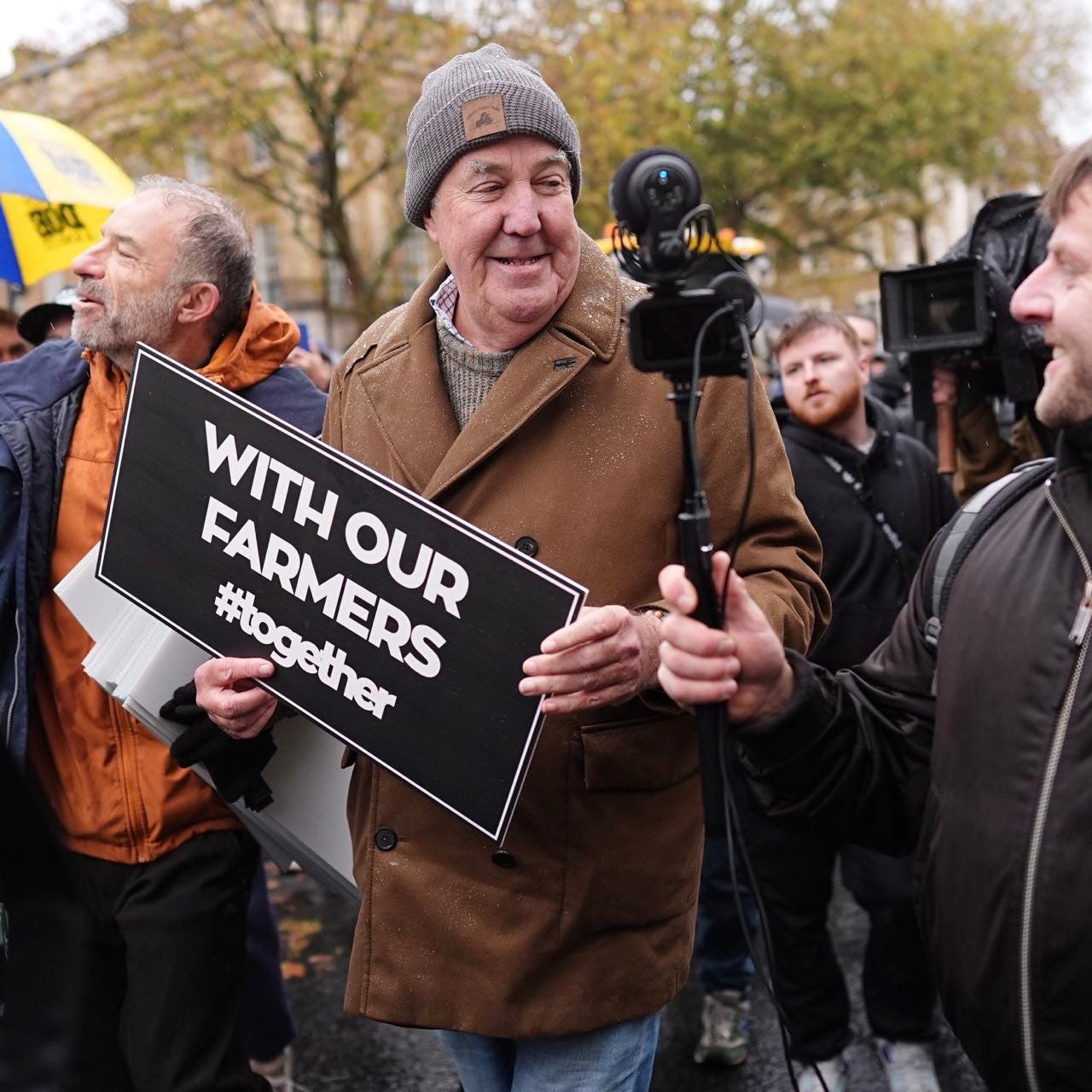
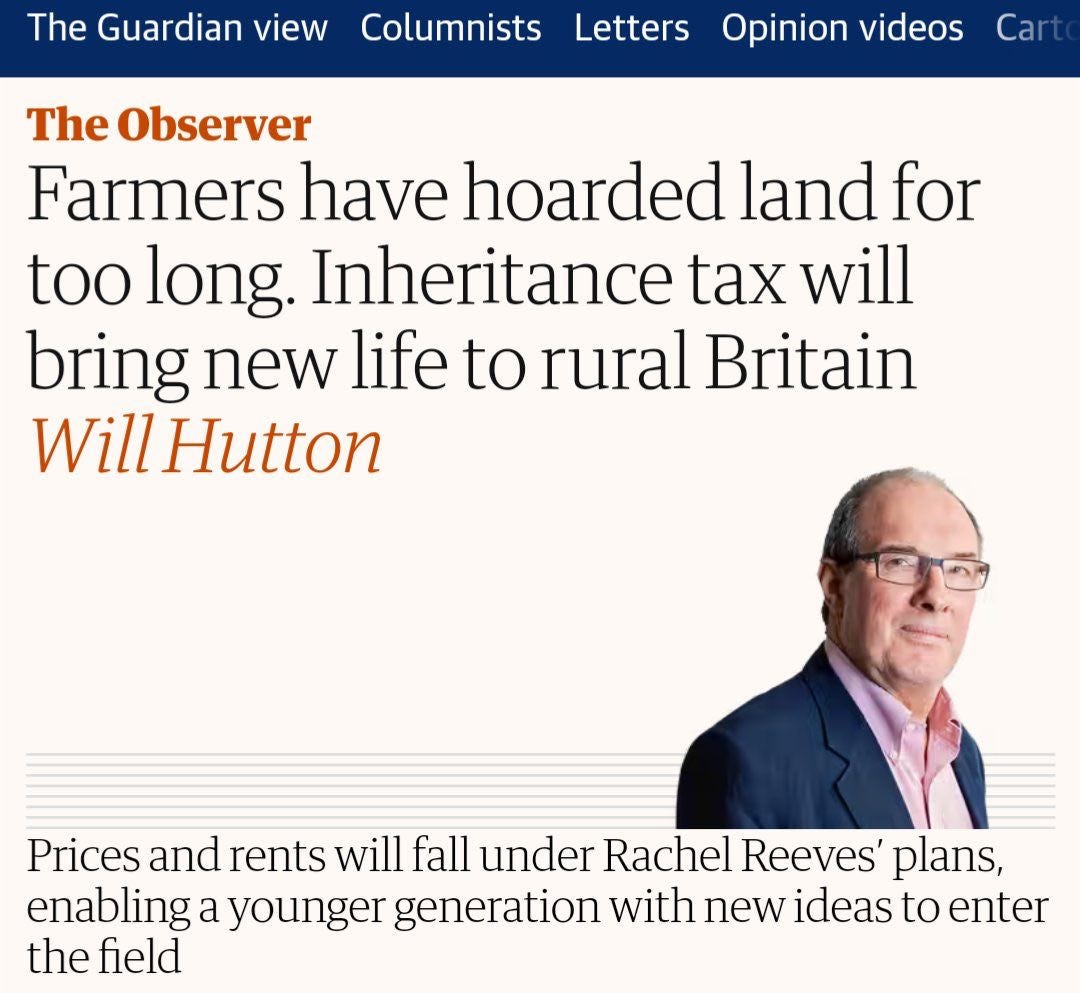
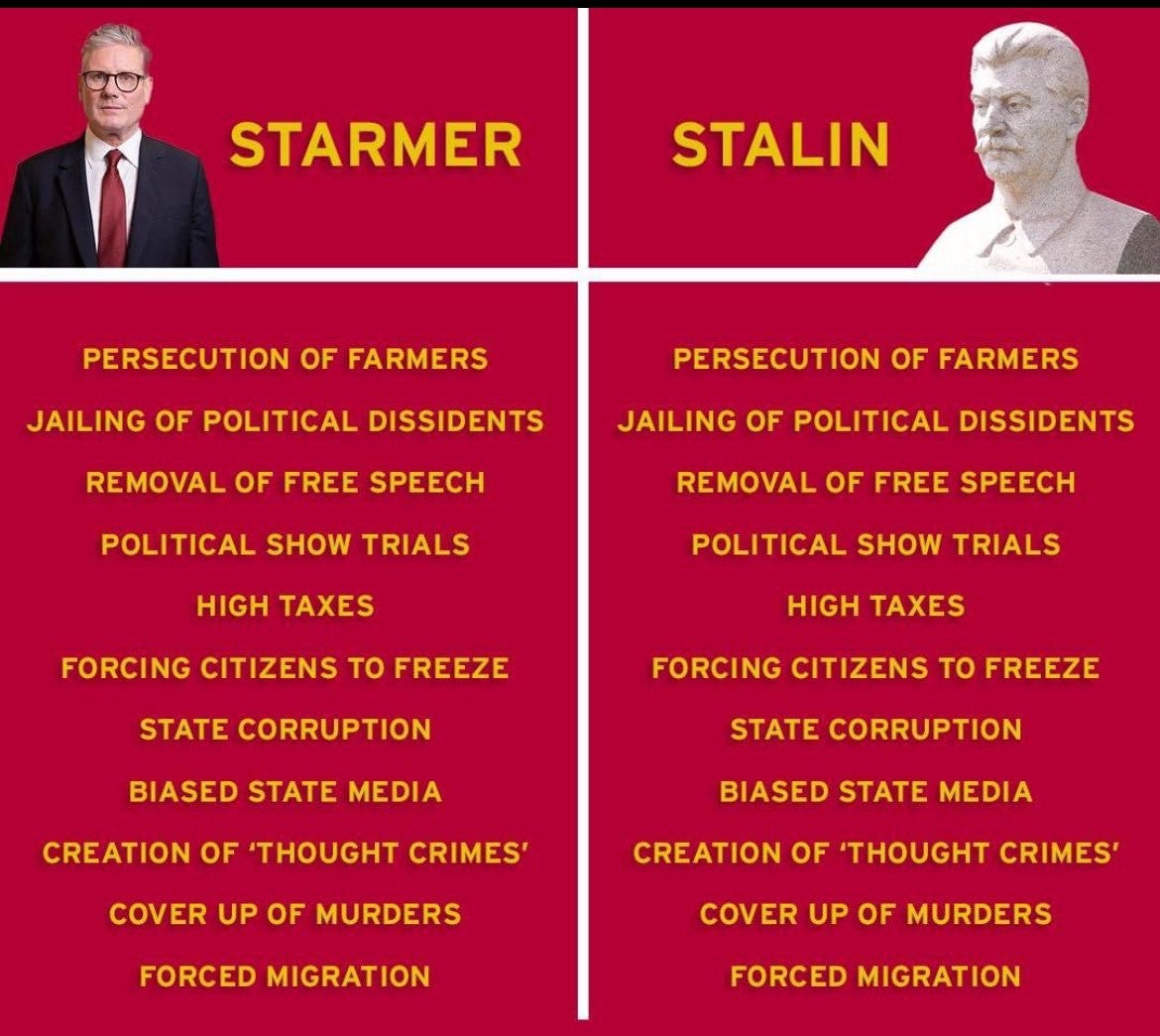
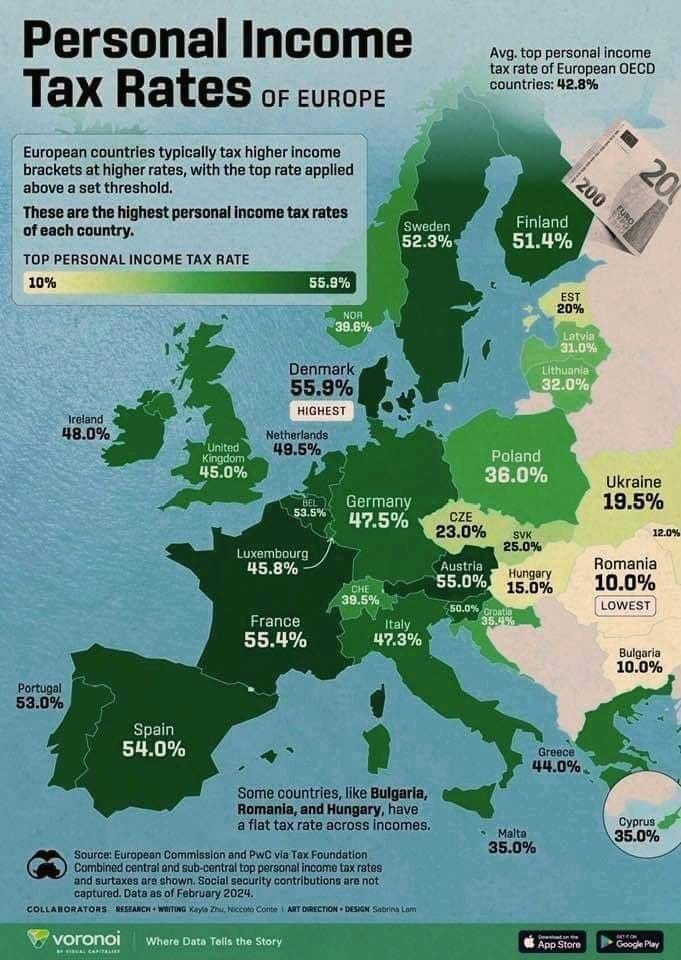
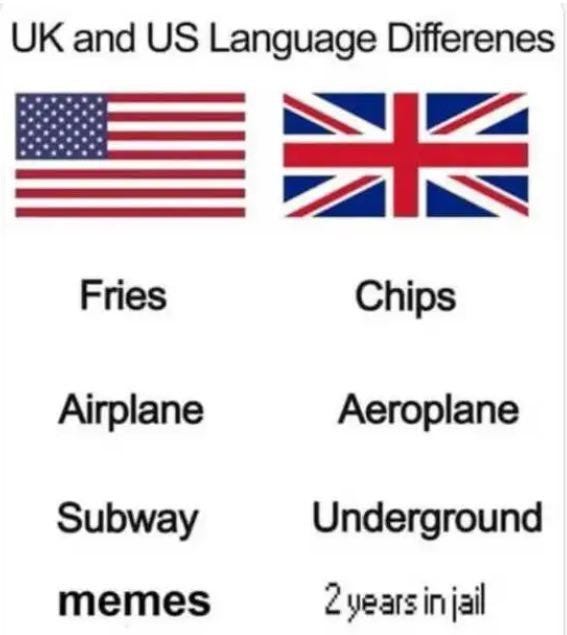


I’m a bit biased as I’m an avid gardener. But to my mind Clarkson’s Farm might be the finest program I’ve ever watched. I laughed. I cried. I learned. I became outraged.
Great piece, Yuri. The best truth: "All humans want to thrive while protecting the environment. This should not be political issue. Everyone wants clean water, abundant healthy food, and access to nature."
I grew up in the 70's and 80's when folks dropped their automobile ash trays in the streets. We all decided to clean our areas up and it happened; without government subsidy. Common sense.